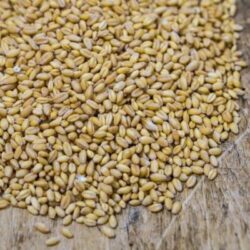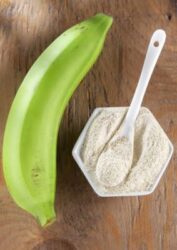7 – Amazing Benefits Of Pineapple For Ulcers Patients
Including the appropriate items into your diet can significantly contribute to ulcer management in terms of encouraging healing and controlling symptoms. Pineapple is one such fruit that stands out for its plethora of health advantages.
Pineapple is full of enzymes and important minerals, and it has several benefits for people who have ulcers. In this post, we’ll look at ten pineapple benefits for ulcer sufferers and how they might improve their general health.
What Ulcers and their Management means
Ulcers are painful sores that form in the lining of the digestive tract, typically in the stomach or the upper part of the small intestine. The most common types of ulcers are gastric ulcers, which occur in the stomach, and duodenal ulcers, which develop in the upper part of the small intestine. These ulcers are often caused by a bacterial infection called Helicobacter pylori, long-term use of nonsteroidal anti-inflammatory drugs (NSAIDs), or excessive stomach acid production.
Managing ulcers involves a combination of medication and lifestyle changes. Medications may include antibiotics to treat H. pylori infection, acid-suppressing drugs to reduce stomach acid production, and medications that protect the stomach lining. Lifestyle changes can involve avoiding trigger foods, reducing stress, and adopting a healthy diet that supports healing and soothes the digestive system.
Also Read: How Long Does A Canned Pineapple Last?
Nutritional Composition of Pineapple
Pineapple (Ananas comosus) is a tropical fruit that is not only delicious but also offers several health benefits. It is low in calories and fat, making it a suitable addition to a healthy diet. Pineapple is an excellent source of vitamins and minerals, including vitamin C, manganese, vitamin B6, and dietary fiber. It also contains a range of enzymes, including bromelain, which contributes to its unique properties.
7-Amazing Benefits Of Pineapple For Ulcers Patients
1. Anti-inflammatory Properties of Pineapple
One of the key benefits of pineapple, particularly due to its bromelain content, is its anti-inflammatory properties. Inflammation plays a significant role in the development and progression of ulcers. Bromelain is an enzyme that helps reduce inflammation by inhibiting the production of inflammatory compounds. By incorporating pineapple into your diet, you may help reduce inflammation in the digestive tract and promote healing.
2. Digestive Enzymes in Pineapple for Ulcer Relief
Pineapple contains a mixture of digestive enzymes, with bromelain being the most notable. Bromelain aids in the digestion of proteins and can help alleviate some of the discomfort associated with ulcers. It assists in breaking down proteins into smaller peptides and amino acids, which eases the digestive process and reduces the burden on the digestive system. This can contribute to improved digestion and reduced symptoms for individuals with ulcers.
3. Soothing Effect on the Stomach Lining
The natural compounds found in pineapple, including bromelain, may have a soothing effect on the stomach lining. Ulcers can cause irritation and damage to the stomach lining, leading to pain and discomfort. Pineapple’s components may help reduce inflammation and promote the healing of the stomach lining, providing relief from these symptoms.
4. Natural Source of Bromelain for Ulcer Treatment
Bromelain, as mentioned earlier, is a proteolytic enzyme found in pineapple. It has been extensively studied for its potential therapeutic applications, including ulcer treatment. Bromelain can help regulate the production of gastric acid and promote a healthy balance in the digestive system. It may also assist in eliminating H. pylori bacteria, which is associated with the development of ulcers.
5. Promoting Healing and Tissue Repair
The combination of anti-inflammatory properties, digestive enzymes, and nutrients in pineapple can contribute to the healing and repair of ulcerated tissue. Pineapple’s components help reduce inflammation, support the digestion of proteins, and provide essential nutrients needed for tissue regeneration. By incorporating pineapple into your diet, you can potentially enhance the healing process and expedite tissue repair.
Also Read: is it good to Eat Pineapple at night?
6. Alleviating Symptoms of Acid Reflux and Heartburn
Ulcers are often accompanied by symptoms such as acid reflux and heartburn, which can be uncomfortable and distressing. Pineapple’s enzymes, including bromelain, may help improve digestion and reduce the occurrence of these symptoms. Additionally, pineapple’s natural acidity is relatively low compared to
7. Supporting Immune Function for Ulcer Recovery
Ulcers can weaken the immune system, making it harder for the body to fight off infections and promote healing. Pineapple can be beneficial in supporting immune function due to its high vitamin C content. Vitamin C is an essential nutrient for immune system health and can help boost your body’s natural defense mechanisms. By incorporating pineapple into your diet, you can provide your body with a vitamin C boost to aid in ulcer recovery.
Incorporating Pineapple into an Ulcer-Friendly Diet
When incorporating pineapple into an ulcer-friendly diet, it’s important to consider a few factors. First, choose fresh pineapple over canned or processed options, as they may contain additives that can irritate the stomach lining. Second, consume pineapple in moderation, as excessive consumption may lead to increased acidity and discomfort for some individuals. Lastly, consider combining pineapple with other ulcer-friendly foods, such as lean proteins, whole grains, vegetables, and healthy fats, to create a balanced meal that supports healing.
Precautions and Considerations for Ulcer Patients
While pineapple can offer potential benefits for ulcers, it’s essential to consider individual sensitivities and consult with a healthcare professional before making any significant dietary changes. Some individuals may be sensitive to pineapple or its enzymes, experiencing digestive discomfort or allergic reactions. Additionally, pineapple’s natural acidity may aggravate symptoms in certain individuals, particularly if they have a history of acid reflux or heartburn. It’s crucial to listen to your body and adjust your diet accordingly.
Also Read: Is Pineapple Good For Gastritis?
Conclusion: Embrace the Healing Benefits of Pineapple for Ulcers
Pineapple, with its nutritional composition, anti-inflammatory properties, digestive enzymes, and immune-supporting effects, can be a valuable addition to an ulcer management plan. However, it’s important to approach pineapple consumption with caution and consider individual sensitivities and preferences. Incorporating pineapple into a well-balanced ulcer-friendly diet can potentially promote healing, alleviate symptoms, and support overall digestive health. Remember to consult with a healthcare professional for personalized advice and guidance regarding your specific condition.
Frequently Asked Questions and Answers
Q: Can pineapple cure ulcers?
A: Pineapple cannot cure ulcers on its own. However, incorporating pineapple into an ulcer-friendly diet can provide several benefits, such as reducing inflammation, supporting digestion, promoting tissue repair, and supporting immune function. It is important to remember that ulcer treatment typically involves a combination of medication, lifestyle changes, and a well-balanced diet.
Q: Can pineapple worsen ulcers?
A: While pineapple can offer potential benefits for ulcers, it may worsen symptoms in some individuals. Pineapple’s natural acidity may aggravate symptoms such as acid reflux or heartburn in certain individuals. Additionally, some people may be sensitive to pineapple or its enzymes, experiencing digestive discomfort or allergic reactions. It is important to listen to your body and adjust your diet accordingly, and it’s always recommended to consult with a healthcare professional for personalized advice.
Q: Is canned pineapple as beneficial as fresh pineapple for ulcers?
A: Fresh pineapple is generally preferred over canned or processed pineapple for ulcer management. Canned pineapple may contain additives, such as extra sugar or preservatives, which can potentially irritate the stomach lining and worsen ulcer symptoms. Fresh pineapple retains its natural enzymes and nutrients without any additional additives, making it a healthier choice.
Q: How much pineapple should I consume for ulcer management?
A: The amount of pineapple to consume for ulcer management can vary from person to person. It is generally recommended to consume pineapple in moderation and observe how your body responds. Excessive consumption of pineapple may lead to increased acidity and discomfort for some individuals. It’s best to consult with a healthcare professional or a registered dietitian for personalized guidance on incorporating pineapple into your ulcer-friendly diet.
Q: Can I take bromelain supplements instead of consuming pineapple?
A: Bromelain supplements can be an alternative to consuming pineapple for individuals who have sensitivities or preferences that make consuming pineapple difficult. However, it’s important to consult with a healthcare professional before starting any supplements, as they can interact with medications or have other potential side effects. Additionally, consuming whole foods like fresh pineapple provides a broader range of nutrients and fiber compared to isolated supplements.
Q: Are there any other precautions to consider when using pineapple for ulcers?
A: It’s important to consider individual sensitivities and allergies to pineapple. Some individuals may experience digestive discomfort or allergic reactions when consuming pineapple or its enzymes. If you have a history of digestive issues or allergies, it’s best to consult with a healthcare professional before incorporating pineapple into your diet. Additionally, if you experience any worsening of symptoms or discomfort after consuming pineapple, it’s advisable to reduce or eliminate its consumption and seek medical advice.


